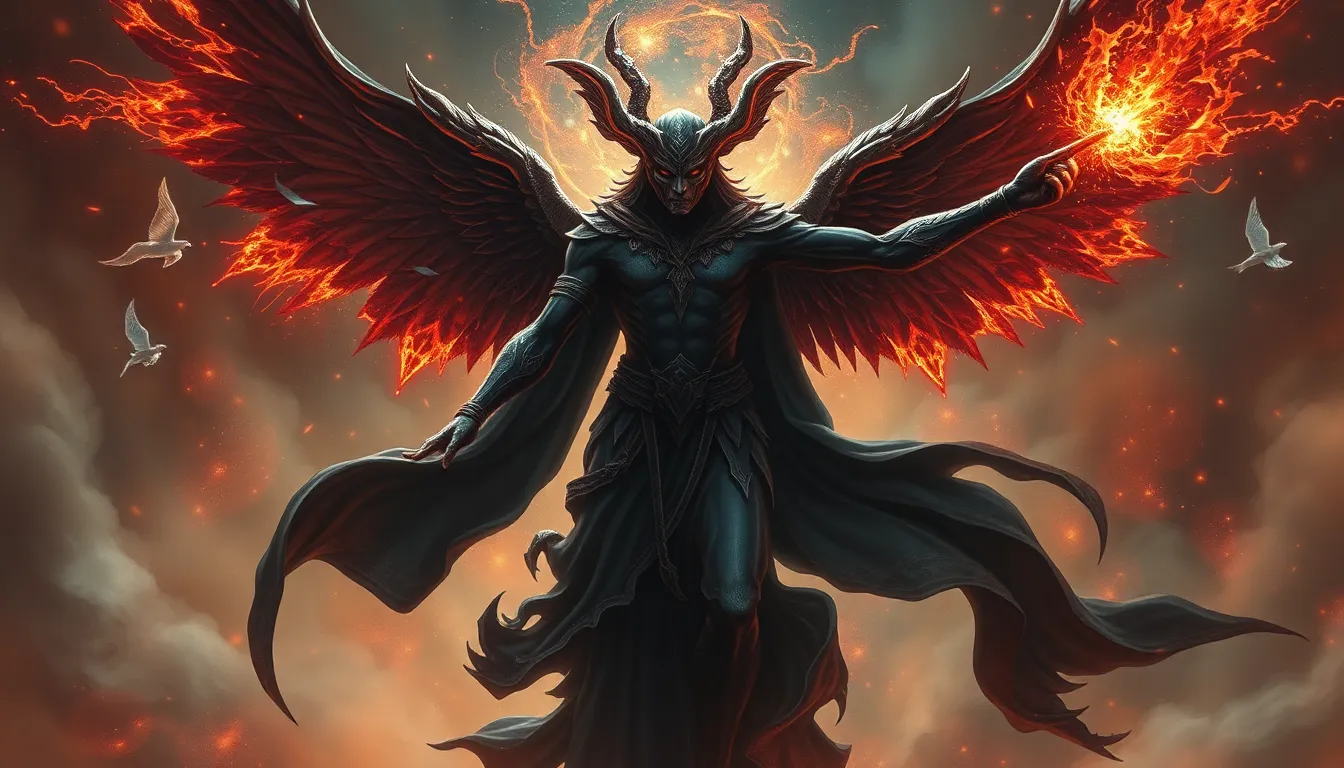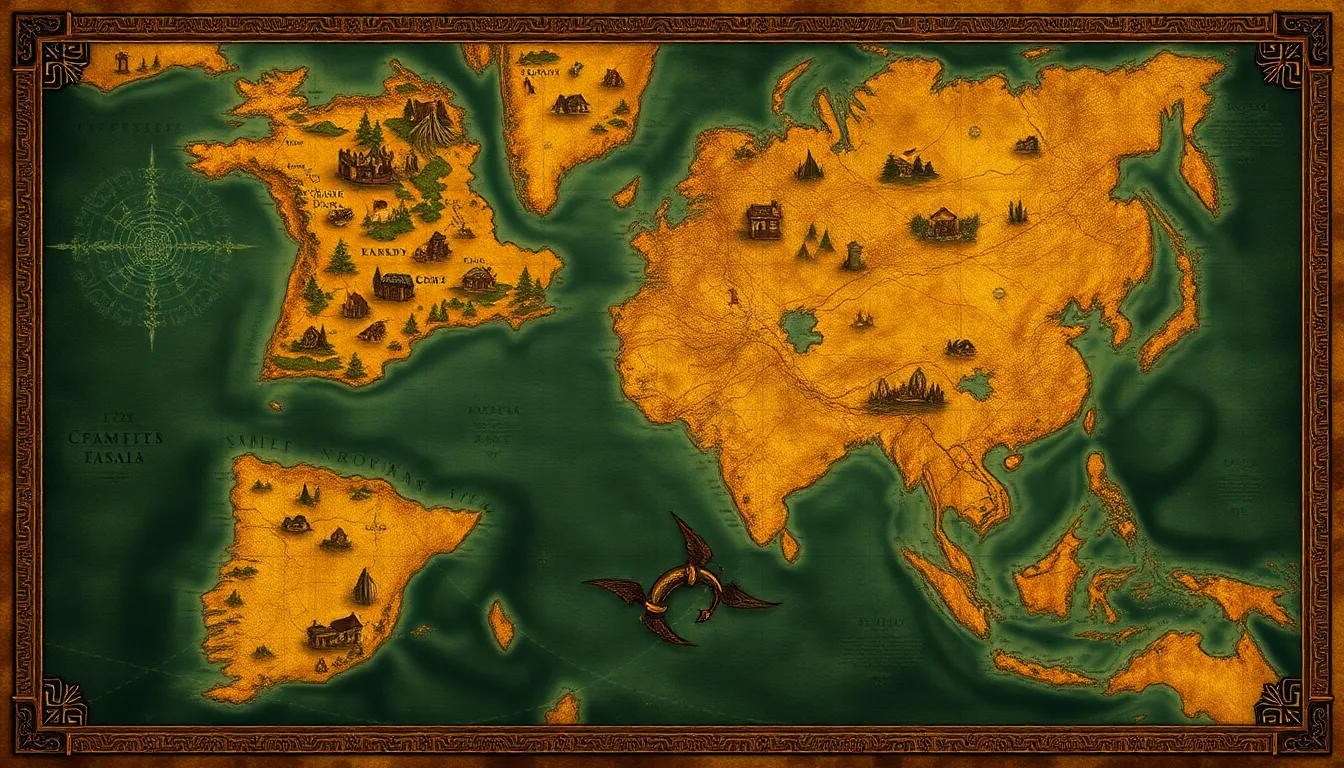When the Divine Demands Justice: Shocking Tales of Retribution
Introduction: The Concept of Divine Justice
Divine justice refers to the idea that a higher power enforces moral order and retribution in the universe. This concept has significant implications across various cultures and religions, often serving as a means to explain the presence of suffering and injustice in the world. The moral implications of divine retribution are profound, as they compel individuals and societies to reflect on their actions and the consequences that may follow.
This article will explore shocking tales of retribution, illustrating how different cultures and religious beliefs interpret divine justice and its manifestation in the world. We will examine historical contexts, religious perspectives, and modern-day interpretations, culminating in case studies that reveal the unsettling ways in which justice is perceived and enacted.
Historical Context: Divine Justice in Ancient Civilizations
In ancient civilizations, the concept of divine retribution was often intertwined with mythology and religious belief. Cultures such as the Greeks, Egyptians, and Mesopotamians told tales that emphasized the consequences of immoral behavior.
- Greek Mythology: The tales of the Furies, who pursued and punished wrongdoers, illustrate the belief in divine retribution. One notable story is that of King Lycurgus, who was driven mad by Dionysus for his disrespect towards the god.
- Egyptian Mythology: The goddess Ma’at represented truth and justice, and her judgment was essential in the afterlife. Those who failed to live justly faced dire consequences, such as being devoured by Ammit.
- Mesopotamian Beliefs: The Epic of Gilgamesh tells the story of how the gods would intervene in human affairs, often punishing those who acted with hubris.
These narratives not only served as cautionary tales but also reinforced societal norms and moral conduct within these ancient cultures.
Religious Perspectives: Retribution in Major Religions
Different religions have unique interpretations of divine justice, often reflecting their cultural contexts and theological foundations.
- Christianity: The concept of sin and redemption is central, with divine retribution often depicted through the consequences of sin. The story of Sodom and Gomorrah is frequently cited as an example of divine punishment for moral decay.
- Islam: In Islam, the Day of Judgment is a pivotal belief where all individuals will be held accountable for their actions. The Qur’an contains numerous references to divine retribution.
- Hinduism: The law of karma illustrates the belief that one’s actions in this life impact future reincarnations, serving as a form of divine justice.
- Buddhism: Similar to Hinduism, the concept of karma plays a crucial role, emphasizing the moral consequences of one’s actions.
This comparative analysis reveals that while the specifics vary, the underlying theme of accountability and moral consequence is a common thread across these religions.
Modern-Day Interpretations of Divine Retribution
In contemporary society, interpretations of divine justice have evolved, often influenced by personal beliefs and communal narratives. Many people now view divine retribution through a psychological lens, considering how individuals attribute their experiences of suffering or misfortune to a higher power.
- Beliefs about divine justice can be shaped by personal experiences, leading to varied interpretations of what constitutes retribution.
- Communal narratives often arise in response to collective trauma, where communities attribute disasters or misfortunes to divine punishment for societal sins.
This modern understanding reflects a dynamic interplay between traditional beliefs and contemporary experiences, illustrating the ongoing relevance of divine justice in society.
Shocking Case Study 1: The Fall of a Public Figure
One striking example of divine retribution in contemporary society is the fall of a prominent public figure, such as a politician or celebrity, embroiled in scandal. Consider the case of a well-known leader whose corruption and unethical behavior led to a dramatic public downfall.
As the scandal unfolded, many in society interpreted the events as a form of divine punishment. This perspective prompted widespread discussion about morality, accountability, and the consequences of one’s actions. The societal reaction was mixed, with some viewing it as a necessary reckoning, while others expressed sympathy for the individual involved.
The moral lessons drawn from such events often emphasize the importance of integrity and the potential for downfall when one strays from ethical conduct.
Shocking Case Study 2: Natural Disasters as Divine Punishment
Natural disasters have often been perceived as acts of divine retribution. Events such as earthquakes, tsunamis, and hurricanes have led communities to speculate about the moral state of society and the potential for divine punishment.
- Hurricane Katrina: After this devastating hurricane struck New Orleans, some religious leaders framed it as divine punishment for the city’s perceived moral failings.
- The 2010 Haiti Earthquake: Following this tragedy, discussions emerged regarding the nation’s history and struggles, with some attributing the disaster to divine retribution for past sins.
The psychological ramifications of such beliefs can be profound, as communities grapple with the intersection of faith and suffering, seeking meaning in the aftermath of catastrophe.
Shocking Case Study 3: Unexplained Illnesses and Misfortunes
Stories of individuals experiencing sudden and severe misfortunes, such as unexplained illnesses, often evoke interpretations of divine justice. These narratives frequently prompt communities to reflect on morality and behavior.
- Consider the story of an individual who, after leading a life of deceit, suddenly falls critically ill. The community may interpret this as a form of divine retribution.
- Such events often lead to a search for meaning in suffering, with individuals and communities attempting to reconcile their beliefs with the reality of misfortune.
The response from the community can vary, ranging from compassion to judgment, highlighting the complexities of understanding suffering in the context of divine justice.
The Role of Folklore and Myth in Shaping Perceptions of Justice
Folklore and myths play a significant role in shaping societal perceptions of divine retribution. These stories communicate moral lessons and reinforce cultural values regarding justice.
- Folktales often feature characters who face dire consequences for their immoral actions, serving as cautionary tales for the community.
- The impact of storytelling can shape behaviors and beliefs, influencing how individuals respond to issues of justice and morality in their lives.
Through these narratives, societies grapple with concepts of right and wrong, often reinforcing the notion that justice will ultimately prevail.
Ethical Dilemmas: The Intersection of Free Will and Divine Justice
The belief in divine retribution raises ethical dilemmas regarding free will and moral accountability. This tension invites philosophical debates surrounding justice and morality.
- Is it just to attribute suffering to divine retribution when individuals have the free will to choose their actions?
- Philosophers and theologians have long debated the implications of free will in the context of divine justice, often leading to varying conclusions.
This intersection of belief and ethics challenges individuals to consider the complexities of their actions and the broader implications of justice.
Conclusion: The Enduring Quest for Justice in a Complex World
The concept of divine justice remains relevant in contemporary society, offering a framework through which individuals and communities can navigate moral dilemmas and experiences of suffering. Shocking tales of retribution, whether through personal misfortune, public scandals, or natural disasters, compel us to reflect on our values and the consequences of our actions.
Ultimately, these narratives shape our understanding of morality, justice, and accountability, reminding us that the quest for justice is an enduring and complex journey in an ever-changing world.



